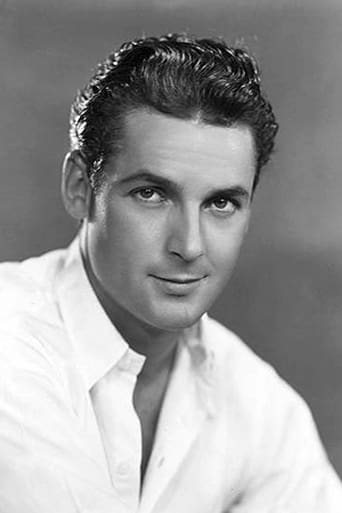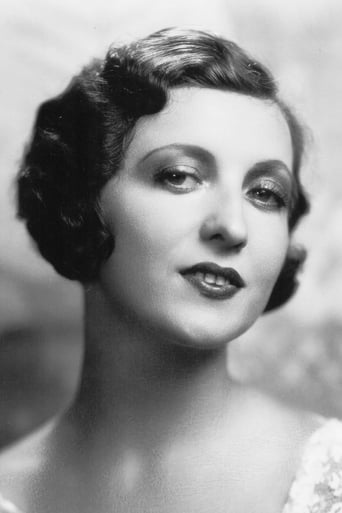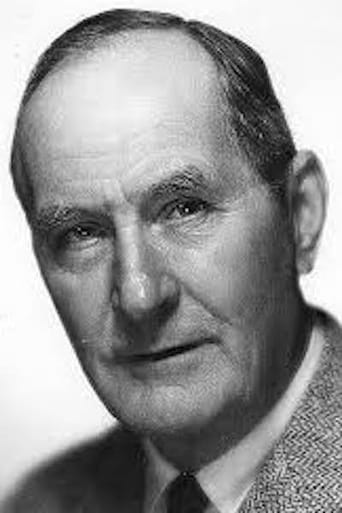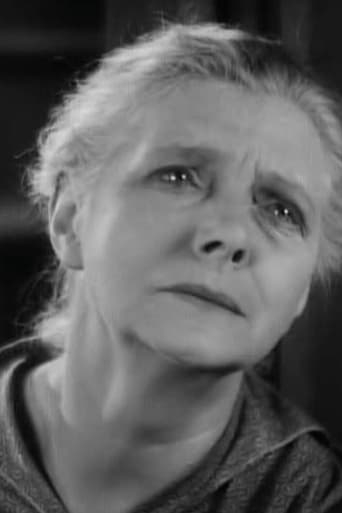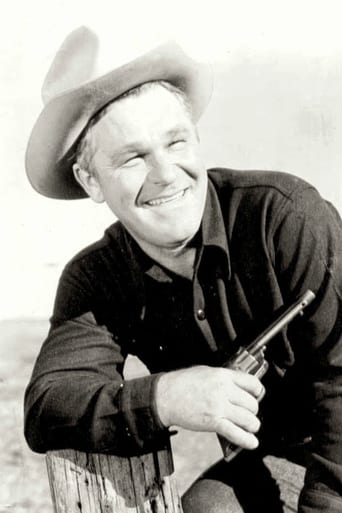Married Baby
Just intense enough to provide a much-needed diversion, just lightweight enough to make you forget about it soon after it’s over. It’s not exactly “good,” per se, but it does what it sets out to do in terms of putting us on edge, which makes it … successful?
st-shot
FW Murnau returns to his urban evil versus rural good theme in this visually striking but lean story involving a Minnesota farmer, a Chicago waitress and the external conflict created by their union. Hayseed Lem Tustine (Charles Farrell) is sent by his dad (David Torrence) to Chicago to sell his wheat crop at a set price. Fending off flirtation on the train he meets kate a waitress in a chaotic restaurant while the wheat price dips. After a whirlwind courtship they marry and he returns home with the a wife and bad news about the wheat. Seeing his son as a rube who lost money and now being exploited by a city girl he explodes chides and emasculates the son. When the help shows up to harvest the wheat they get an eyeful of Lem's wife and like what they see. Things really take a turn for the worse when the crop is threatened and the bunk house boys rebel.Given their similar theme and settings City Girl cannot avoid comparison to Murnau's classic Sunrise and while it does not rise to its stature, it retains his outstanding use of film language. Once again we have one of cinema's great visual storytellers unfold in image after image scenes of magnificent panorama and intense emotional close-up conveyed without utterance of a word. Scenes such as the camera riding on the wagon with the reapers and in a moment that teems with ironic beauty the arrival of the newlyweds in the wheat field at the farm glow with vitality and movement under the masterly hand of Murnau..Mary Duncan as Kate is a restrained Swanson who has her best scenes with the stern, violent father played by David Torrence in a restrained version of his bro Ernest. Edith Yorke cowers and frets as ma while Richard Alexander as Mac excels as a harboring menace. Charles Farrell is mealy and spineless in a reprise of his Sunrise character in the throes of moral dilemma but without that dark side his performance annoys.Flaws exist with some slow moments midway, the improbable actions of the hired hands and the father's stifling character limits the stories growth but Murnau for the most part provides us with more than a few gripping moments while deepening the cynicism and lasciviousness of his cast with expressive and informative closeups with little reliance on title cards. It is a thin story lushly told by a master.
sosuttle
Principally I write to let my fellow silent-film fans know that the new release (Oct. 1, 2015; UPC 024543991151)by Fox Cinema Archives does contain the wonderful score composed by Christopher Caliendo. Often the soundtrack can make or break a release and the music here is wonderful. It is the same as found on the earlier and quite expensive Murnau, Borzage and Fox box set. Secondly, I would take issue with those who have said here that City Girl is not up to Murnau's earlier standards. In that regard I would point out that every Van Gogh is not "Starry Night." I agree that this film is not a masterpiece like Sunrise or The Last Laugh, but it is nonetheless a terrifically rendered film. The cinematography is stunning as is the art direction. It really captures the flavor of the late 1920s and serves in several ways as an "inadvertent documentary." The scenes in Chicago are a virtual snapshot of urban living and the footage of pre-mechanized farming is also worthy of note. I for one had never seen a mule-drawn threshing machine in operation. It really is fascinating. As for the cast, I've never seen a bad performance by Charles Farrell and he is absolutely believable in this role. And Mary Duncan is simply radiant. Strong performances by Edith Yorke, a young Anne Shirley, Guinn Williams and the always superb David Torrence make for an all around enjoyable film. In fact, this is one of my favorite "second tier" silent films. I think it is well worth your while.
ironhorse_iv
Being a fan of F.W Murnau's horror films, like 1922's Nosferatu & 1926's Faust. I found the movie to be a bit disappointing. Don't get me wrong, I love his films that picturization the harsh realities of life, such in the case of 1924's the Last Laugh, but this movie is just a nearly a mirror image of his previous well-made film, 1927's Sunrise. While, Sunrise had a complex story, that mixed melodrama, romantic and thriller, well. This movie sadly didn't live up to that. Based on the play "The Mud Turtle" by Elliott Lester. The movie tells the story of a young woman, Kate (Mary Duncan), a waitress in a busy Chicago lunchroom who lives a dreary city life. She dreams of escaping the depressing realism city terms and returning to the romanticism beliefs of the countryside. She sees Lem Tustine (Charles Farrell) as her way out. Lem is a naïve and sweet-natured farm boy who has been sent to the city to sell his family's wheat crop. Over the course of a few visits, they fall in love, marry, and set out for the wheat-fields. Kate find out first-hand, that country life isn't what she dreamt, it could be, as Lem's harsh, tyrannical father (David Torrence), run and work his farm-hands hard in a nearly fascist dictator state. Can Kate survive farm-life, or will she leave back for the city? All of the acting is pretty well-done. Due to the director inability to secure the services of Sunrise star Janet Gaynor. The director was forced by the studio to substitute for Mary Duncan. She was chosen reportedly because she was the girlfriend of one of the Fox executives. I was disappointed to read that Mary Duncan gave up the profession just a couple of years after this movie wrapped as she had real star quality. Charles Farrell had a longer lasting career, before going into politics. He end, being the mayor of Palm Springs for a while. Both leads deliver tremendous performances in City Girl. David Torrence plays the formidable father figure with great vigor and is terrifying. His constant scowl works to overshadow the central romance. Still, his character never made much sense in the reason, why he is angry. The whole ending turn seem unrealistic, and unexplained as hell. Richard Alexander as Mac, the quietly devious but charming, love interesting/rival was alright for the most part. One thing, that the film seem to missing was the German Expressionism. Everything, here seems to be made in the style of American filmmaking. Gone are the exaggerated, fairy-tale world city sets that made movies like Sunrise stand out. Everything here was indeed control by the lower budget due to the Great Depression. The city sets were nearly limited to two scenes in a small studio. One is the busy diner, where Murnau captures city life as a bustling and crowded, as every extra seems in a rush to get to one place or another without showing much of the city landscape. Two is the apartment that Kate lives. Her apartment looks out over flashing neon signs and an elevated railway just inches from her window is thrown in for good measure. I was really hoping for more than that. The country sequences are poorly lit with characters using oil lamps in order to navigate the house and fields at night. There were a few impressive tracking shots, but for the most part. It wasn't used due to the change in locations. F.W Murnau wanted it in Minnesota, but due to budget, it was filmed in Oregon. You truly don't see much of the landscape in this film. F.W Murnau always used forced perspective in most of his films, but in this film. It was indeed, missing. Director F.W. Murnau wanted the title of the film to be "Our Daily Bread", but the studio refused, as the title might offended Christians watching the film. City Girl went on somewhat call 'the Intruder' in French cinemas due to misunderstand in language of the plot as people thought it was a murder mystery like Sunrise. City Girl was made in a time, where silent films were falling out of fashion for 'talkies' movies. While, the film, which had been shot silent. The studio scheduled to have parts of it re-shot with sound. Murnau refused, wanting nothing to do with "talkies". Due to this and other clashes with the Fox studio, he left the picture before it was completed. An assistant director finished it. A version of the film, with some sound elements, was made alongside the silent version, but was lost over time. As of this writing, the silent version is the only copy of this film. So indeed, the final product perhaps was Murnau's vision and its shows. Since the movie is a public domain silent film. The score of the film differs by copy. Arthur Kay's original score might be missing in some of them. Depending on your copy, Christopher Caliendo might be yours. Its feature an upbeat, fast tempo but jolting score which captures the frenetic stop-start pace of city life and more apathetic pace for the country. It's the best version. The movie was indeed cut as there are 90 minutes versions, and 77 minute ones. For an old silent film, most of the copies are surprising well restored. There are a few dirt on the film, but for the most part, nice and clean. Look for the Masters of Cinema Blu-Ray version or 20th Century Fox - Region 1 for the best copies. Overall: City Girl a great example about love and the struggle between rural life and urbanization. It's a paradoxical retelling of the fable of the city rat versus rat fields.
headly66
For it's time I'm sure The City Girl was a bawdy piece of film work what with all the sexual advances and threats of rape posed by the hired hands. I'm not sure it has lost that quality as I found the hitting of women and the lechery of the men to be quite unsettling in it's reality. The film is simple, so simple it could have been written out on a couple pieces of paper, the dialog is good, the acting fair and the lighting and music exceptional. Heavy makeup on the actors especially Charles Farrell is a bit distracting and takes away from the modernness of the images. Even though this film is from 1930 you can easily relate to the times and characters. It is an enjoyable film and a time machine back to a simpler era but the story is too predictable and a bit contrived.


